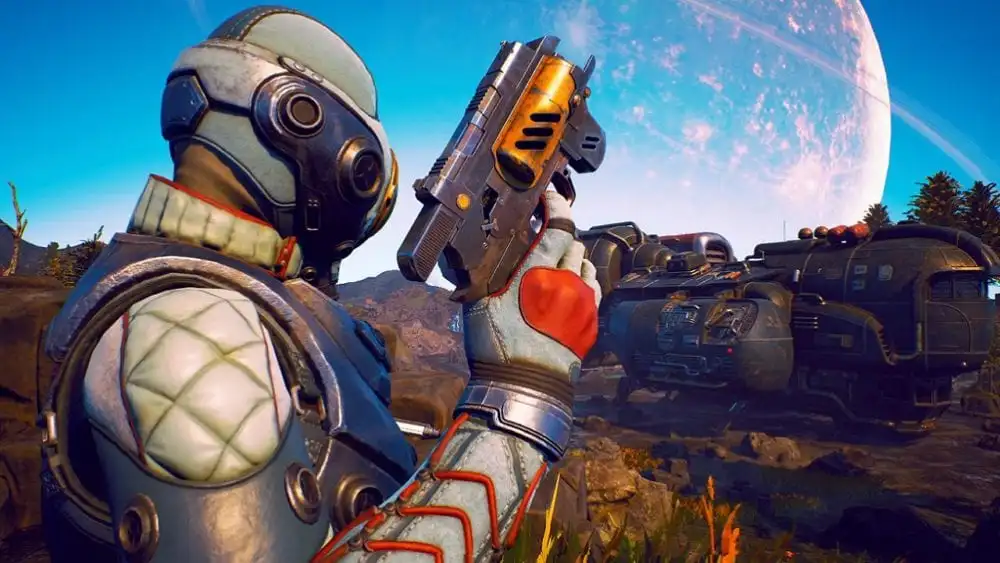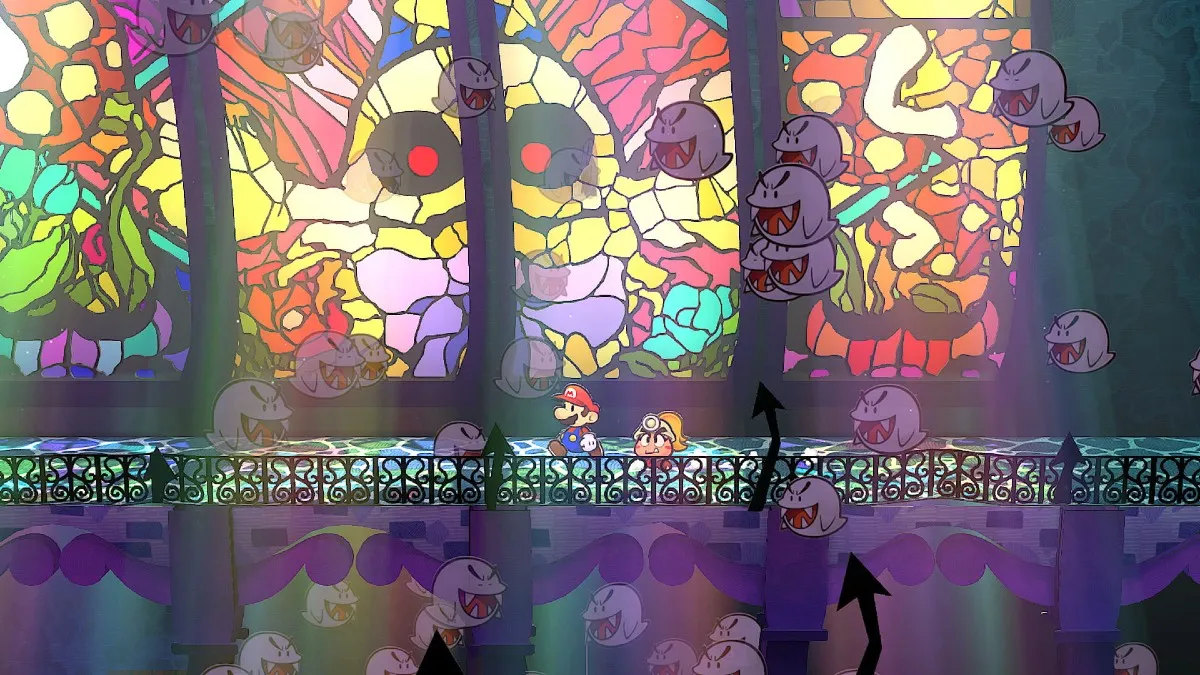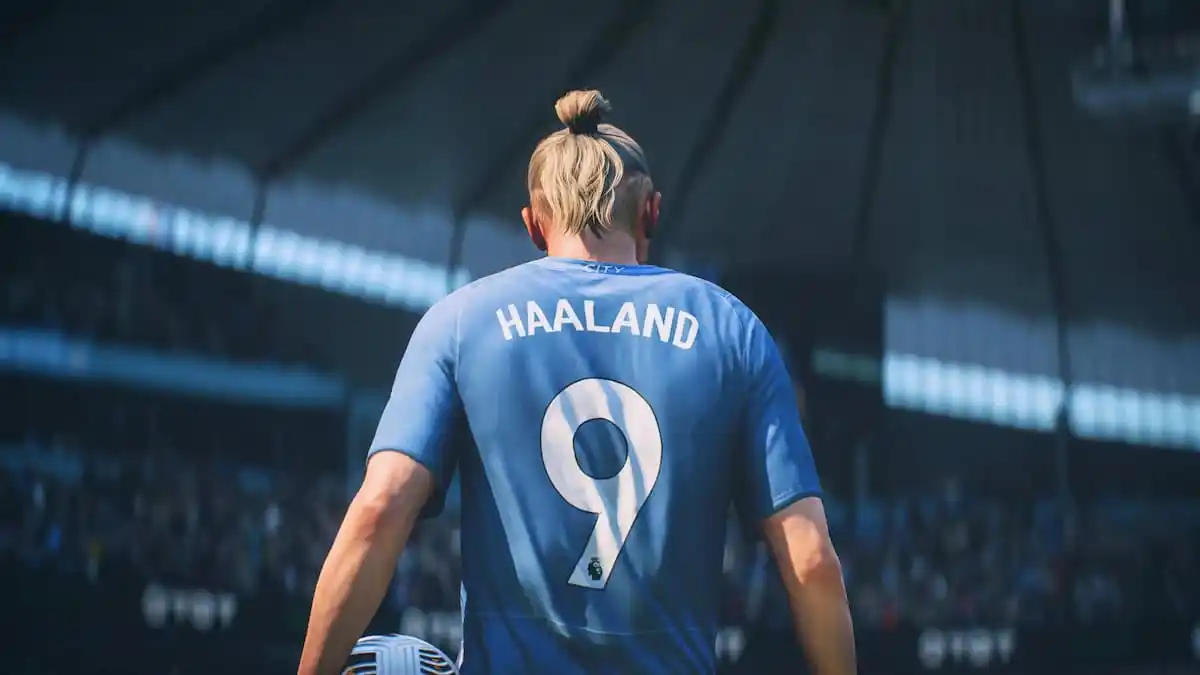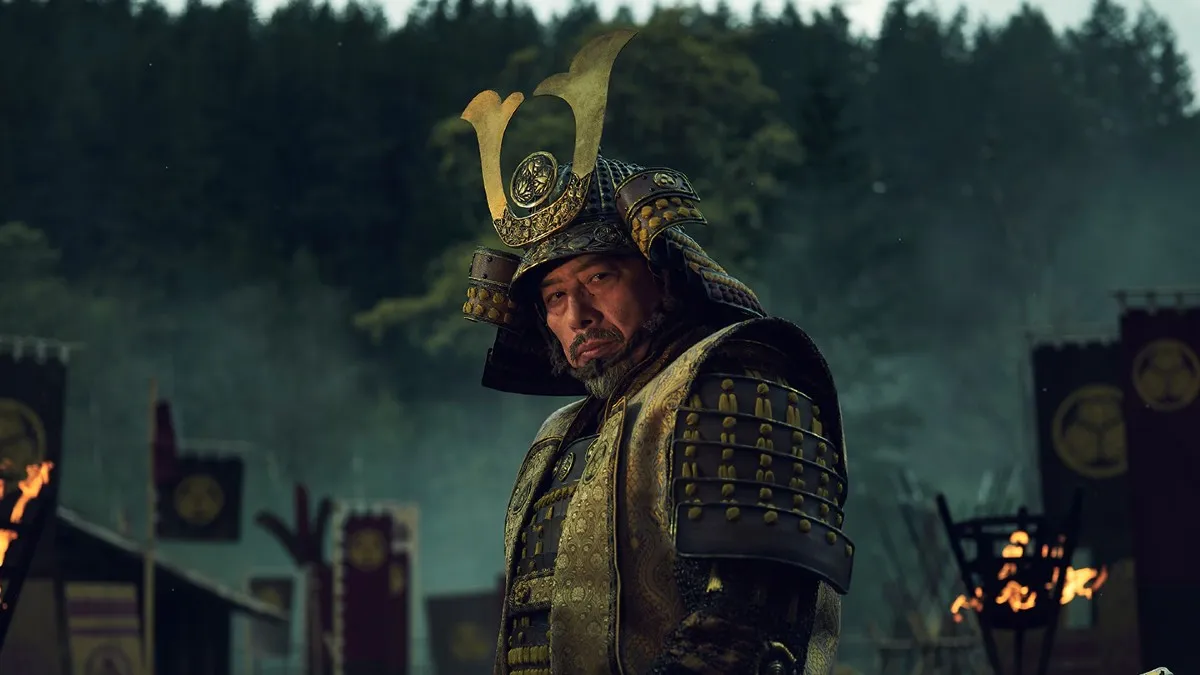The Outer Worlds drew a lot of attention at its announcement as a massive new single-player RPG from Obsidian Entertainment, seemingly inspired by their work on titles like Fallout: New Vegas.
At a recent preview event, we managed to get a couple of hours of hands-on time with the game, as well as a follow-up interview with the game’s Senior Designer Brian Hines.
With the RPG pedigree Obsidian has, The Outer Worlds is definitely an exciting prospect, so we took some time to sit down with Hines and asked some of our burning questions on the game, from how companions can turn against you to how the shooting and combat feels.
Hayes: Has joining Microsoft changed anything about the game’s development, or the way that you’re going forward?
Brian Hines: No, really that acquisition will affect future projects from Obsidian, it really hasn’t changed how we’re approaching The Outer Worlds. Private Division, our publisher, we’re working with them, it’s been a great experience and really anything that comes from that change will be future titles we announce.
Hayes: You’ve talked a lot about how important morality is to this game, and how important player choice is. How drastic of a difference can you see between different types of morality, like how drastic is that difference between a good character and an evil character?
Brian Hines: So we’ve got a very different breadth, because you have the players who will just try and help out everybody to the best of their ability and then find out that maybe they’re helping the wrong people along the way.
There are a few characters that will ask you to do things that sound very beneficial, and then the more you help them the more you realize you’re going down a dark path. Then, of course, you have the choice of continuing along or fighting against them, that sort of thing.
We also have the option, because players can attack and kill anybody they want to in this world, you can just go around slaughtering everybody. One of our designers, she loves doing a playthrough where she goes through, helps everyone, gets all the quest XP she can from them, and then kills them for maximum XP gain from everybody (laughs). Based on how you want to play the game, there’s a lot of options there.
Hayes: And how do you design around being able to kill any NPC in the game? How do you stop players from pushing themselves into a corner by killing everyone?
Brian Hines: So we try to find, like look at, okay who is actually critical and what information do players actually have to know? So if this person gets killed, how else can we convey that information to keep the quest moving forward?
Whether that’s like in a terminal, or on a note on their body that would give you that information, and then if there’s just no elegant way to do it that’s when the quest fails, and that’s kind of the consequence of choosing to slaughter everyone.
Hayes: I did notice in the save that I loaded into, in the journal, there was a failed quest section. How does failing quests affect your progress in the story? Are there any ramifications that will come later down the line?
Brian Hines: It can. So for example, in some areas you need to do a certain amount of quests in order to achieve maximum reputation with the group who’s running the area, in order to really get the most beneficial max reward, or the final quest for the faction line.
If you fail some of those quests, then you’re not going to be able to achieve that best result with that faction or that group.
Hayes: With next-gen coming up, are you looking at any kind of cross-gen release for Outer Worlds?
Brian Hines: At the moment we’re just focusing on the current generation consoles and PC. Anything beyond that, we’ll see how well the game does and then there’ll be discussions with Private Division beyond that.
Hayes: A common complaint that a lot of players have in action-RPGs like Fallout is that the shooting feels a little imprecise. How are you going about trying to make the combat and the shooting feel good?
Brian Hines: I think there’s a couple of things. We’re definitely trying to tune the mechanics so that it feels good for a player who is familiar and comfortable with shooters, but we’re trying to find that sweet spot between comfortable and feels good for shooter players but doesn’t require you to be the best shooter player ever in order to play.
Because a lot of Obsidian fans are RPG gamers who aren’t that big on shooter mechanics, so some of the ways we help with that is, for example, the tactical time dilation system, which allows you to slow down the pace of combat, and makes it easier for you to aim and locate weak points on enemies.
And by choosing when you level up, how you invest points in skills and perks, you can really get that tactical time dilation to last a lot longer, so that you have more opportunities to use that during combat.
For players who aren’t that comfortable with shooters to really get the most out of their combat experience, we’re making it more of a tactical experience rather than an action shooter experience.

Hayes: Obviously companions are a huge part of this game. You’ve said previously that companions can go against you if you make the wrong decisions. Can you talk a little about how that happens, and what kind of effects that has?
Brian Hines: So usually it’s very clear if you’re making a choice a companion doesn’t agree with, they’re going to let you know about it before you’ve made the choice, so you have a chance to stop and think if you still want to make that choice and move forward that way.
If you do then depending on the choice, usually for most companions you have a couple of options and you can try and talk them down from getting fully depressed or against you.
But if you make a choice that’s really against what they believe and you haven’t done enough working with them and building reputation with them, they’ll leave your party completely and you’ll lose the ability to have that companion with you.
Hayes: Is there ever a chance where a companion would try and kill you?
Brian Hines: It can happen, yes. There are some quests, I don’t want to give out too many details, but you could end up attacking someone that the companion cares about very deeply, at which point they would leave your party and start fighting against you. Which, of course, if you’ve leveled up that companion and given them great equipment, you’re now facing them in combat (laughs).
Q: With companions in the game, what was the idea behind veering away from romance options?
Brian Hines: So it’s one of those things that doing a romance well requires a lot of time and commitment, and with the scope of the game we just felt like we were tackling enough to get done that we didn’t want to add romance options and do them poorly.
So that was just one of those things where we had to look at what’s realistic for us to accomplish and we wanted to focus our energy there, so romances were just something we had to look at as, nope, not something we can really tackle at this point.
We like doing them, we just want to make sure that if we are going to do them, we do them well.
Hayes: What are some of the ways that you try to flesh out companions in this game?
Brian Hines: Generally for all of our companions, we look at them kind of systemically. What is their role in combat, how do they flesh out the player’s abilities? All of your companions have their own skills that go up as they level up, which may be very different from yours.
Depending on what those skills are, they will actually help you and assist you in the game. So if you are really bad at lying to people, you have some companions who are better liars than you are, so in various conversations they can unlock new options for you that you wouldn’t have otherwise.
Or a companion might be great at picking locks, and can help you open doors you wouldn’t normally have access to. So there’s that systemic role where we try to make sure that there are a variety of companions who can support the player based on your play style and what you’re good at or not as strong at.
Then we try to look at the personalities of the companions. Different people look for different things from a companion depending on different playthroughs.
We have some companions who are sassy , quick-witted, and always have a nice comeback to what’s going on. Some are weak and supportive, and help reinforce all the decisions you’re making. One of my favorite companions is basically, he’s not dumb he’s just very sincere in his interests. It’s great he’s like kind of your hype man, like whenever you get in a situation he’s like ‘You got it boss!’ (laughs). He has some of the best companion lines, some of my favorite in the game.
So we try and look at the overall experience of companions, and make sure there are different personalities and different skills so that there are a variety of things that different players might look for.
Hayes: A lot of past Obsidian titles have had a lot of little secrets and Easter Eggs to uncover, like in New Vegas when you could find the alien weapon at the top of the map. Can we expect kind of similar breadth of little secrets to uncover in Outer Worlds?
Brian Hines: Definitely, there is some of that (laughs). Without going into specifics and ruining any of them, there’s a lot of things we tried to hide, like even just the fact that a lot of our quest titles are takes on classic sci-fi novels. So people who enjoy pun humor will enjoy some of the ways we’ve renamed quests, like Slaughterhouse Clive.
Things like that, and there are various things that we’ve tried, like I’ve placed a few in areas around the game that only a small number of people may know about, but if they do they’ll get the reference and hopefully get the humor of it.

Hayes: The game is split out into different zones, correct? Why did you decide to do the zones kind of idea, rather than a full open world? And how do you tread the line of keeping players on narrative but also providing exploration opportunities?
Brian Hines: I think part of it is looking at the game as “The Outer Worlds,” we wanted the player to have multiple worlds to travel to, and obviously with one streamlined map you can’t do that. Once we knew we were going to do multiple locations, we wanted to say okay that gives us an opportunity to do very different environments.
We’ve got other areas like space stations, asteroids with breathable atmosphere. Things like that just give more of that feel of sci-fi. One of the things I think sci-fi does well is that feeling of exploration, with something new on each planet you land on the.
The StarGate or the Firefly idea that everywhere you go is a new adventure, and by being able to travel to different worlds we’re trying to capture that feel each time.
Hayes: There are all these different factions in the game. Depending on which faction you support, how does that change the game and the story? Can that have a huge effect?
Brian Hines: It can have a huge effect, you can get different endings entirely based on the factions that you decide to support and work with. There are a couple of very main crucial factions throughout the entire game, and then there are a couple of local factions that are based in the area you’re traveling to.
The smaller ones will mainly affect how the people in that area feel about you, but the larger factions, the game-spanning factions, will ultimately change exactly how the ending of the game plays out.
Hayes: With a game that’s so focused on player choice, are you trying to consider anything where if The Outer Worlds is successful, if it moves past here, are those choices we make now going to matter in the future? Are you trying to think long-term like that?
Brian Hines: Right now we’re trying to focus on finishing this game and wrapping that up, and then if it does well and more opportunities come up, those are absolutely questions we’ll consider. Whether we’ll continue the story, or whether we’d show you another part of this universe that we’re creating.
That will ultimately depend on if people enjoy playing The Outer Worlds when it releases.
Hayes: The visual design of the game is very unique, especially in terms of all the in-game ads you see. Is there anything that you looked at or referenced when trying to design the looks and feel of the world?
Brian Hines: That would probably be a better question for our art director. I know that there’s a lot of things they looked at like kind of 50’s nostalgia and the overall tone and feel of those ads. They really wanted to capture that sense of if this were a world that started from that point and advance 200 years into the future, how would that iterate and grow over time?
Again being very corporate-centric very brand-centric, everything is about a corporation offering you something or a benefit you’re receiving because of this brand. Even our tutorials are branded by various companies, and all of the consumables and armor.
Hayes: I did notice all these NPCs say something like “The Spacer Way.”
Brian Hines: In a lot of cases that’s part of their employment agreement in the game is they have to constantly use the right slogans, and that’s seen as good job performance, as being loyal to your brand.
Hayes: Obviously, a lot of the community for a game like this, modding tools is something they’re interested in. Is modding something you’re considering?
Brian Hines: It’s something we’ve talked about, again it’s something that comes down to, with our current budget and scope, it’s not something we’re focusing on at the moment, but we always love creating modding tools and letting player being able to modify things.
Whether it’s through tools we provide or tools of their own. At the moment, it’s not something we’re really focusing on due to time and current limitations on the game.
Hayes: With huge expansive RPGs like this, people are often worried about bugs and how the game is going to perform when it comes out. Leading up closer to release, what would you tell people who are worried about that kind of thing?
Brian Hines: I think one of the ways that we’ve been doing it throughout the course of The Outer Worlds development is that we’ve had a lot of support from Private Division with their QA team, and recently we’ve also been contracting an additional QA group to help in the last few months just pounding on the game.
It’s always great to get a fresh set of eyes, because when people have been in the game for months and years they stop seeing the little things, so we bring in fresh eyes and we’re also bringing in people to do focus tests and give us feedback.
So we’re really focusing on bringing a polished experience for release.
The Outer Worlds releases on October 25 for Xbox One, PlayStation 4, and PC. A Nintendo Switch version of the game will come at a later date.





